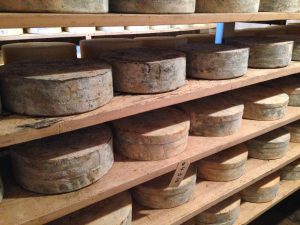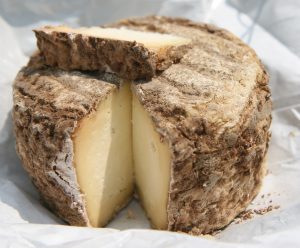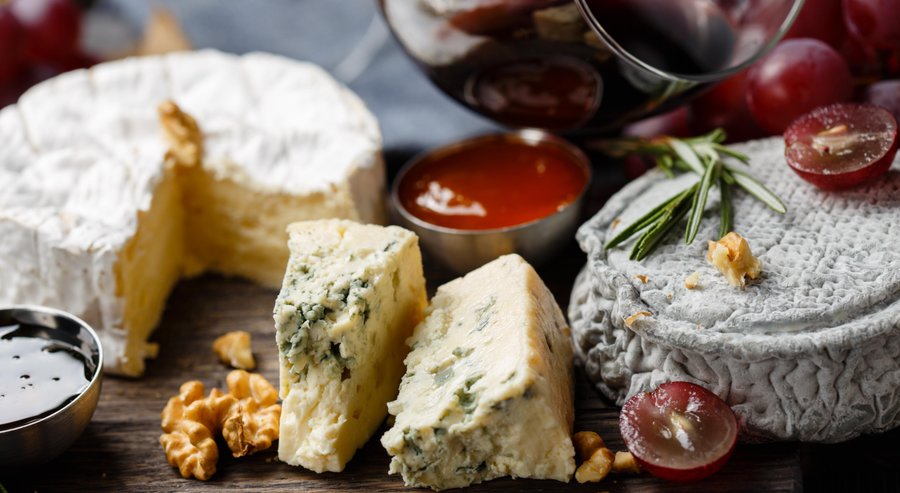 Artisanal cheese refers to cheeses produced by hand using the traditional craftsmanship of skilled cheesemakers. As a result, the cheeses are often more complex in taste and variety. Many are aged and ripened to achieve certain aesthetics. This contrasts with the more mild flavors of mass-produced cheeses produced in large scale operations, often shipped and sold right away.
Artisanal cheese refers to cheeses produced by hand using the traditional craftsmanship of skilled cheesemakers. As a result, the cheeses are often more complex in taste and variety. Many are aged and ripened to achieve certain aesthetics. This contrasts with the more mild flavors of mass-produced cheeses produced in large scale operations, often shipped and sold right away.
Part of the artisanal cheese making process is aging and ripening of the cheeses to develop flavor and textural characteristics. One type of artisanal cheese is known as farmstead cheese, made traditionally with milk from the producer’s own herds of cows, sheep, and goats. Artisan cheeses may be made by mixing milk from multiple farms, whereas the more strict definition of farmstead cheese (or farmhouse cheese) requires that milk come only from one farm.
There has been a lot of discussion relating to what truly defines artisanal cheese. The American Cheese Society defines artisan, or artisanal cheese as, “The word ‘artisan’ or ‘artisanal’ implies that a cheese is produced primarily by hand, in small batches, with particular attention paid to the tradition of the cheesemaker’s art and thus using as little mechanization as possible in production of the cheese. Artisan, or artisanal, cheese may be made from all types of milk and may include various flavorings.” While it is something that is debated by some, those involved in the industry still share a passion for making hand created products, which may or may not include some manufacturing equipment, that will be enjoyed by many consumers.
 The artisanal cheesemaking process can be quite extensive and resembles modern chemistry in many aspects. Many different factors affect the overall product of a finished artisanal cheese product; this includes, but is not limited to what species of grass consumed by the cattle that provided the milk source, any sudden changes of heat, and any loss of cultivated yeast, or changes in barometric pressure. These factors to an extent are different from large commercial manufacturing cheesemakers, and affect artisanal cheese more heavily.
The artisanal cheesemaking process can be quite extensive and resembles modern chemistry in many aspects. Many different factors affect the overall product of a finished artisanal cheese product; this includes, but is not limited to what species of grass consumed by the cattle that provided the milk source, any sudden changes of heat, and any loss of cultivated yeast, or changes in barometric pressure. These factors to an extent are different from large commercial manufacturing cheesemakers, and affect artisanal cheese more heavily.
In the last decade, the American artisanal cheese industry has seen an increase larger than that in the twenty years prior to, in artisan creameries being licensed for commercial business. This translates to approximately 450 different artisan cheese makers existing in the United States today. Three regions have come to lead the way in this category, New England, Wisconsin, and California. This rise in the popularity of artisan cheesemaking has also coincided in a rise in the number of dairy farms, all while traditional cattle ranching has been decreasing in numbers.

0 comments